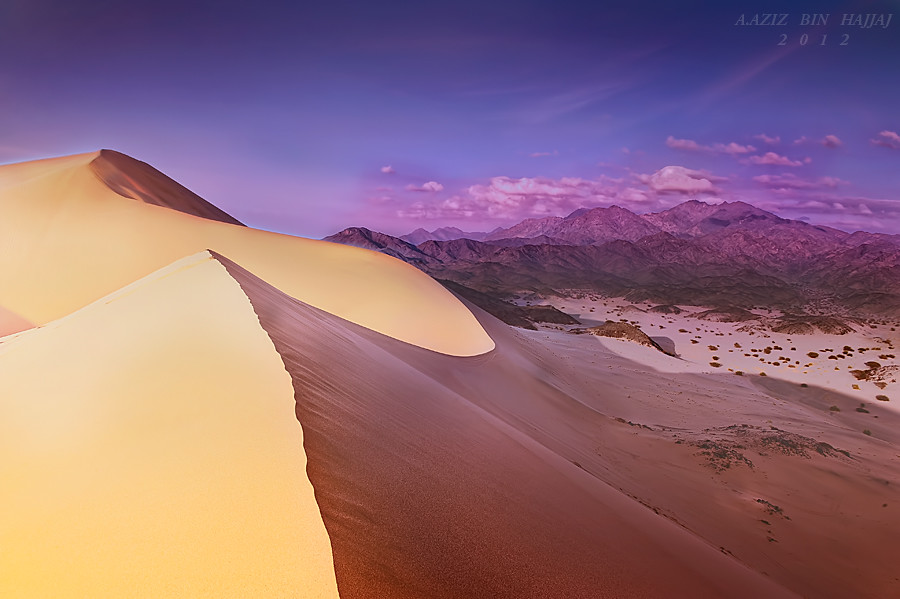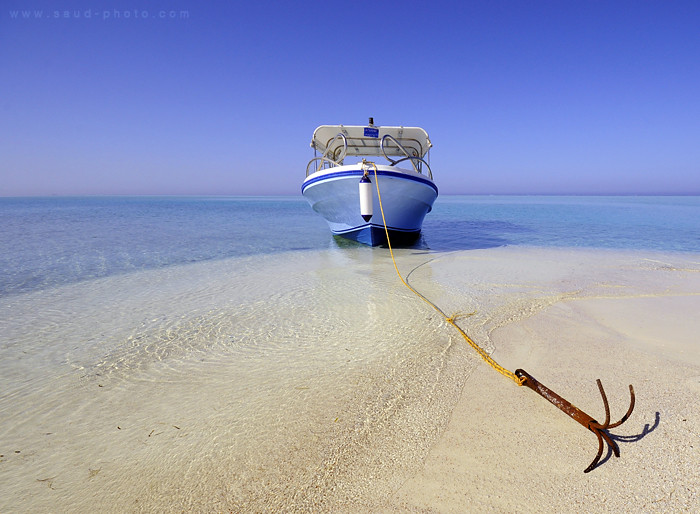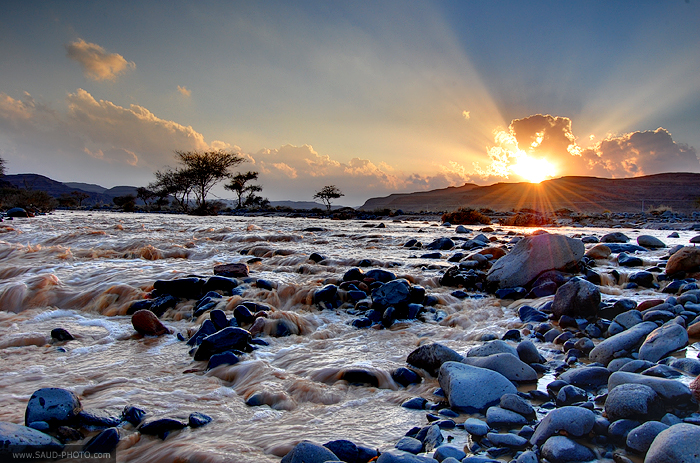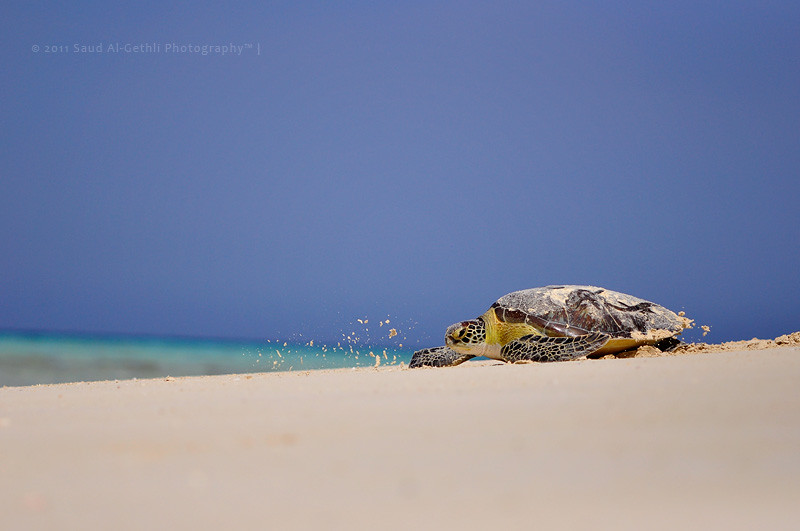al-Hasani
ELITE MEMBER

- Joined
- Feb 1, 2013
- Messages
- 14,047
- Reaction score
- 43
- Country
- Location
Thank you for the great reply. I am pleasantly surprised, to be honest, but gratified too that Saudi Arabia is finally opening up its beautiful people, history and culture to the outside world. I can only wish you all a great success in this effort, and I look forward to visiting the country again, after a long time.
You are very welcome brother. It's about time that something happened on this front looking how many millions upon millions of tourists nearby, less attractive, less diverse and much smaller areas, receive. KSA is already the 15th most visited country on earth despite not having a "real" tourism sector but this is mostly (about half of that number) thanks to the Hajj and Umrah. I have no doubt that tourism will be a significant income sector in the future once what needs to be done will be done on this front.
------------------------------------------------------------------------------------------------------------------------------------------------------------------------
‘Only SCTA can announce KSA excavation findings’

IMPORTANT DISCOVERY: A photo released by the SCTA on Monday shows
some of the stelae found in the Kingdom with Arabic inscriptions.

IMPORTANT DISCOVERY: A photo released by the SCTA on Monday shows
some of the stelae found in the Kingdom with Arabic inscriptions.
Tuesday 5 August 2014
The French Ministry of Foreign Affairs and International Development had no right to announce the result of excavations taking place in the Kingdom, the Saudi Commission for Tourism and Antiquities (SCTA) announced Monday.
“The SCTA is the sole authority to make such announcements,” said Ali bin Ibrahim Al-Ghabban, vice president of SCTA for antiquities and museums. He was referring to a French Ministry announcement on the discovery of the oldest Arabic inscriptions in the southern Saudi region of Najran. The findings were the result of excavations carried out by a Saudi-French joint archaeological team.
“This discovery and many other similar discoveries in the Kingdom’s northwest indicate the most ancient use of the Arabic alphabet,” he said.
“This discovery is in the advanced stages of scientific verification before being announced to the media by SCTA, according to the convention that regulates Saudi and international joint scientific missions,” Al-Ghabban said.
The SCTA is the only body authorized, on the basis of this international convention, to announce the archaeological discoveries after finalizing the scientific studies, he said, adding that it was a practice followed globally.
Al-Ghabban further disclosed that there are more than 30 joint scientific teams who carry out excavation work on several archaeological sites across the Kingdom in accordance with scientific administration protocols and under the full supervision of the SCTA.
He added that SCTA is the authorized entity to announce the scientifically verified discoveries, as it has been doing it over the past years. “We will announce the recent discovery about the emergence and evolution of the Arabic alphabet once the testing and scientific stages are completed.”
According to the French Ministry report, epigrapher Frédéric Imbert, a professor at the University of Aix-Marseille, found the Nabatean Arabic inscription about 100 km north of Najran near the Yemeni border. “The first thing that makes this find significant is that it is a mixed text, known as Nabatean Arabic, the first stage of Arabic writing,” he said. This script had previously only ever been seen north of Hejaz, in the Sinai and in the Levant.
The second is the fact that these inscriptions are dated. The period indicated corresponds to the years 469-470 AD. This is the oldest form of Arabic writing known to date, which represents the “missing link” between Nabatean and Arabic writing, said a spokesman from the ministry.
‘Only SCTA can announce KSA excavation findings’ | Arab News — Saudi Arabia News, Middle East News, Opinion, Economy and more.
Nabatean-Arabic missing link: ‘Oldest’ inscription found in Najran | Arab News — Saudi Arabia News, Middle East News, Opinion, Economy and more.

Nabatean Arabic inscription
french: http://www.yabiladi.com/articles/det...scription.html
french: http://www.diplomatie.gouv.fr/fr/dos...ulturel-114654
"Islamic Graffiti at the beginning of Islam: new discoveries in Saudi Arabia."

Islamic graffiti at the beginning of Islam, photography Frédéric Imbert
By Frederic Imbert
Islamic graffiti at the beginning of Islam, photography Frédéric Imbert
The study of thousands of graffiti in Saudi Arabia, hitherto neglected by researchers, we deliver a photograph of the Arab and Muslim society of early Islam completely new. Carved in stone, analyzed by mass, the High Islamic era graffiti written in Kufic called archaic characters have shed new light on the early history of Islam in the seventh-eighth century of the Christian era and first and second century of the Hegira that we knew only by relatively late and hagiographic texts.
Since the mid-1980s, Frédéric Imbert is interested in Islamic epigraphy. His research led him to Jordan, Egypt, Syria, Tunisia and graffiti from the dawn of Islam in Saudi Arabia in recent years. This is a true "Islam stones" from the title of one of his publications he reveals his knowledge of classical Arabic and history texts. Professor, he taught at the University of Aix-Marseille. This specialist in linguistics, languages and literatures of the Arab world and its markets is Director of the Department of Middle Eastern Studies at the IREMAM, the Institute for Research and Studies on the Arab and Muslim world.
Summary of its communication
Recent epigraphic surveys carried out in Saudi Arabia in November 2012 as part of the Oasis Arabian Mission (CNRS, UMR 8167) have revealed new Arabic texts dating from the first two centuries of the Hegira. It is essentially Islamic graffiti epigraphic mission gave order to identify and analyze. In a first exploration around the city of Najran (South Arabia, near the Yemeni border) our attention was particularly drawn by fifty graffiti collected on piles of rocks at a place called al-Murakkab . Systematic surveys have revealed the presence of a core of very ancient texts of which is dated 59 AH (678 AD). Curiously, it is associated with text representations engraved size men with arms raised in the said position of praying. Undoubtedly these human figures are contemporary epigraphic texts; above one of them, the name al Haytam-b. Bishr is engraved and is repeated in various other sites around Najran.
However, the most spectacular discovery on the site was a unique and autograph graffito 'Umar Ibn al-Khattab, a companion of the Prophet and the second Caliph of Islam, murdered 24/644. During a second exploration north Saudi, epigraphic mission noted 200 graffiti clustered on some cliffs near dumat al-Jandal. Three unpublished texts mentioning two caliphs and princes of the Umayyad dynasty (661-750) were discovered on this occasion. Recent fieldwork enable support the hypothesis of local shrines specifically dedicated to the etching of prayers and invocations whose formulas are repeated by hundreds and that we now call "walls pardons."
French:http://www.canalacademie.com/ida1034...-Saoudite.html
Graffiti and declarations of faith – Frédéric Imbert


11/02/2013
Rock face covered with drawings and graffiti in kufi arabic from the Islamic period (Arabia 7th-8th centuries AD). The rock fell from the mountain and rolled down in the sand to finish… overturned. All the texts are therefore upside-down. Their content is mainly religious: calls for pardon and mercy, declaration of faith, of divine omnipotence (Photo F. Imbert, Mission Dûmat al-Jandal 2012). Prof. Frederic Imbert, a specialist of arab and islamic epigraphy, is taking part in the graffiti conference.
Graffiti and declarations of faith – Frédéric Imbert | Scribbling through History

































 Joking aside, then no. I was also more referring to Jewish Arabs traveling with Arab passports into KSA or Jews living in the US or Europe etc. It was just to show him that I am not against KSA having visitors that have other religions than Islam. They might even be atheists for all I care. But it is a strange question to ask because KSA is already inhabited by people of all religions and Christians, Hindus or whoever can freely visit the country and they also do that for business, tourism, work.
Joking aside, then no. I was also more referring to Jewish Arabs traveling with Arab passports into KSA or Jews living in the US or Europe etc. It was just to show him that I am not against KSA having visitors that have other religions than Islam. They might even be atheists for all I care. But it is a strange question to ask because KSA is already inhabited by people of all religions and Christians, Hindus or whoever can freely visit the country and they also do that for business, tourism, work.